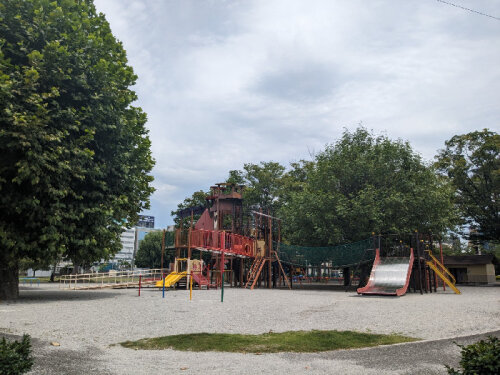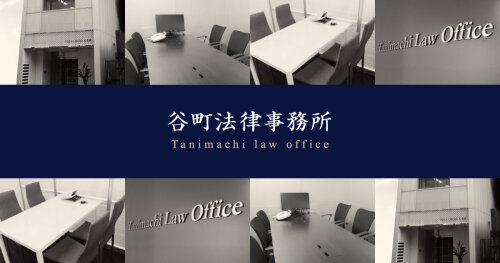Best Due Diligence Lawyers in Japan
Share your needs with us, get contacted by law firms.
Free. Takes 2 min.
Or refine your search by selecting a city:
List of the best lawyers in Japan
About Due Diligence Law in Japan
Due diligence in Japan is a critical aspect of conducting business and investment activities, ensuring that legal, financial, and operational risks are thoroughly assessed. It involves a comprehensive evaluation of various aspects of a business or entity to verify all business information before finalizing a transaction. Commonly required in mergers and acquisitions, investments, and partnerships, due diligence in Japan is governed by local laws and regulations to protect involved parties and ensure compliance. Thus, being well-versed in Japan’s due diligence legal framework is vital for businesses and investors operating in the region.
Why You May Need a Lawyer
There are several scenarios where individuals or businesses may require legal assistance for due diligence in Japan, including:
- Mergers and Acquisitions: When acquiring or merging with another company, ensuring all legal, financial, and operational aspects are checked is largely facilitated by legal professionals.
- Investment Decisions: Potential investors often seek legal advice to perform background checks and validate the financial health and legal standing of a prospective investment.
- Compliance Audits: Ensuring compliance with Japanese laws and regulations can be complex, and legal guidance can prevent potential legal pitfalls.
- Real Estate Transactions: In property investments or purchases, comprehensive due diligence is necessary to verify title deeds, zoning laws, and compliance matters.
- Risk Management: Identifying and mitigating risks in business contracts or operations often require legal expertise to protect against liability.
Local Laws Overview
In Japan, due diligence is influenced by a variety of national laws and guidelines. These include:
- Commercial Code: Sets the groundwork for commercial transactions and corporate structures, impacting how due diligence is conducted.
- Financial Instruments and Exchange Act (FIEA): Governs securities transactions and mandates thorough due diligence for listed companies.
- Act on the Prevention of Transfer of Criminal Proceeds: Requires financial institutions to conduct know-your-customer (KYC) checks, a form of due diligence aiming to prevent money laundering.
- Corporate Governance Code: Encourages transparency and accountability in corporate management, significant in evaluating company practices.
- Data Privacy Laws: Compliance with data protection regulations during due diligence is crucial, governed by the Act on the Protection of Personal Information.
Frequently Asked Questions
1. What is the purpose of due diligence in Japan?
The primary purpose is to assess the value, risks, and legal compliance of a business or investment opportunity, ensuring informed decision-making and risk mitigation.
2. Is due diligence legally required in Japan?
While not always legally mandated, due diligence is a standard business practice essential in complex transactions like mergers and acquisitions to avoid legal and financial liabilities.
3. How is due diligence conducted in Japan?
Due diligence involves reviewing financial records, legal compliance documents, operational procedures, and market conditions, often involving legal, financial, and industry experts.
4. Who typically conducts due diligence?
It is often carried out by legal and financial professionals or specialized due diligence consultants, providing an objective and thorough analysis.
5. How long does the due diligence process take?
The duration can vary greatly depending on the complexity and scale of the transaction, ranging from a few weeks to several months.
6. What are common challenges in due diligence?
Challenges include accessing accurate information, understanding local regulations, potential cultural differences, and aligning stakeholder expectations.
7. How much does due diligence cost in Japan?
Costs vary based on the scope and depth of the process required, typically ranging from a few thousand to several million yen.
8. What happens if due diligence reveals issues?
Revealed issues can lead to renegotiations, price adjustments, or even the withdrawal from the transaction entirely.
9. Are there specific due diligence requirements for foreign entities?
Yes, foreign entities must often provide additional documentation and adhere to specific regulatory compliance checks.
10. How can I ensure compliance with Japanese laws during due diligence?
Hiring local legal experts familiar with Japanese regulations helps ensure compliance and detailed scrutiny during the due diligence process.
Additional Resources
Those seeking further guidance in due diligence can look to the following resources:
- Japanese Ministry of Justice: Provides legal resources and insights into commercial laws in Japan.
- Japan External Trade Organization (JETRO): Offers information and support for foreign companies looking to enter the Japanese market.
- Financial Services Agency (FSA): Governs financial regulations, which can be pivotal during financial due diligence.
- Japan Federation of Bar Associations: Can help locate qualified lawyers specializing in due diligence and related legal fields.
Next Steps
If you need legal assistance in due diligence, consider taking the following steps:
- Identify Your Needs: Clearly define what aspects of due diligence you require assistance with, such as financial, legal, or operational checks.
- Research Legal Experts: Look for law firms or consultants with expertise in due diligence, especially those with experience in your industry.
- Schedule a Consultation: Meet with chosen experts to discuss your needs, understand their approach, and evaluate their experience.
- Prepare Necessary Documentation: Gather all relevant documents and information beforehand to ensure a comprehensive review.
- Set Clear Objectives and Deadlines: Establish your goals and timelines for the due diligence process to facilitate smooth and efficient operations.
Lawzana helps you find the best lawyers and law firms in Japan through a curated and pre-screened list of qualified legal professionals. Our platform offers rankings and detailed profiles of attorneys and law firms, allowing you to compare based on practice areas, including Due Diligence, experience, and client feedback.
Each profile includes a description of the firm's areas of practice, client reviews, team members and partners, year of establishment, spoken languages, office locations, contact information, social media presence, and any published articles or resources. Most firms on our platform speak English and are experienced in both local and international legal matters.
Get a quote from top-rated law firms in Japan — quickly, securely, and without unnecessary hassle.
Disclaimer:
The information provided on this page is for general informational purposes only and does not constitute legal advice. While we strive to ensure the accuracy and relevance of the content, legal information may change over time, and interpretations of the law can vary. You should always consult with a qualified legal professional for advice specific to your situation.
We disclaim all liability for actions taken or not taken based on the content of this page. If you believe any information is incorrect or outdated, please contact us, and we will review and update it where appropriate.
Browse due diligence law firms by city in Japan
Refine your search by selecting a city.
















